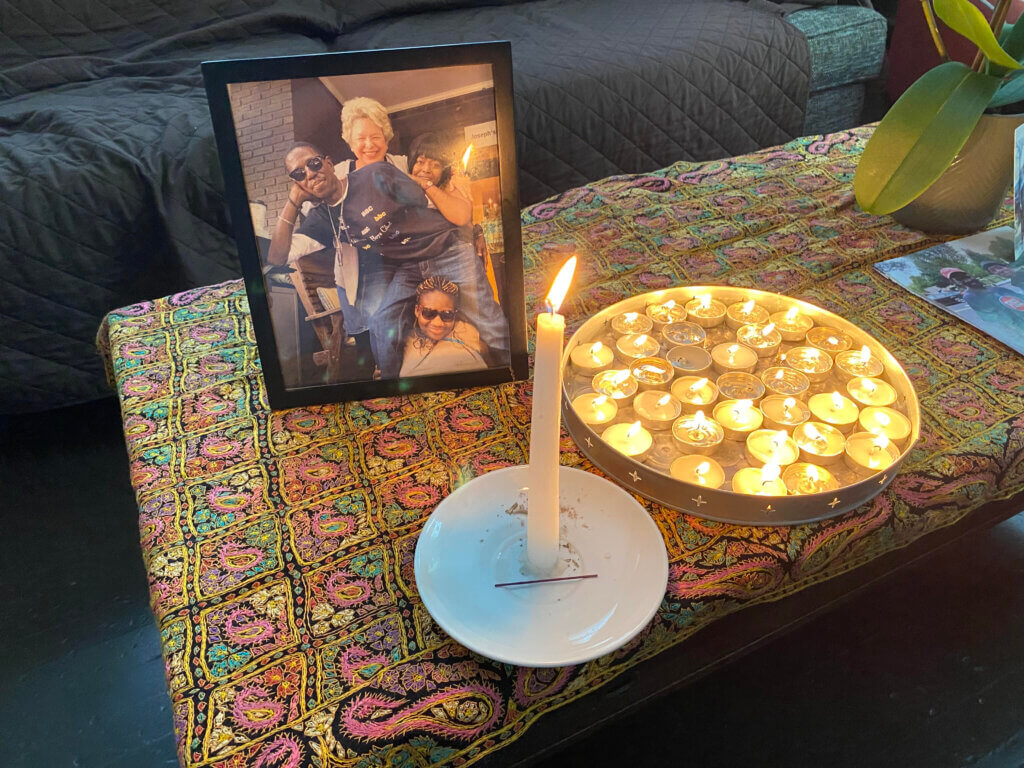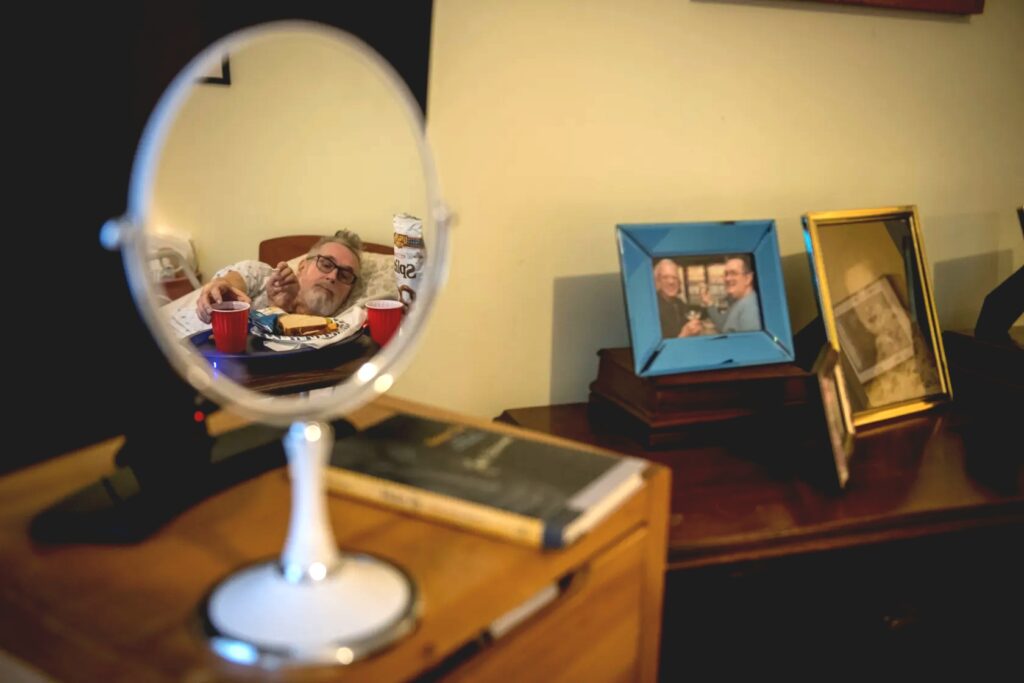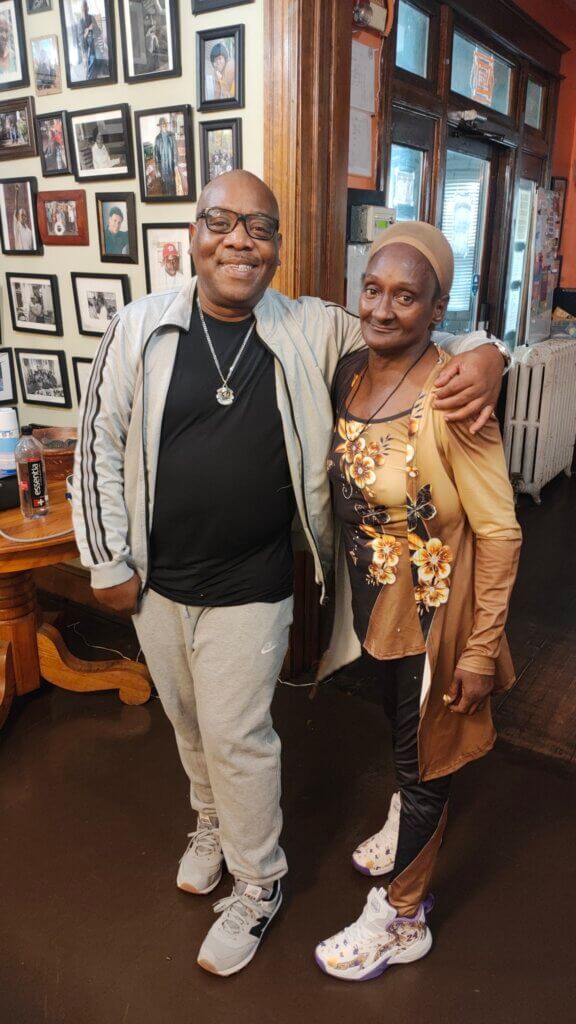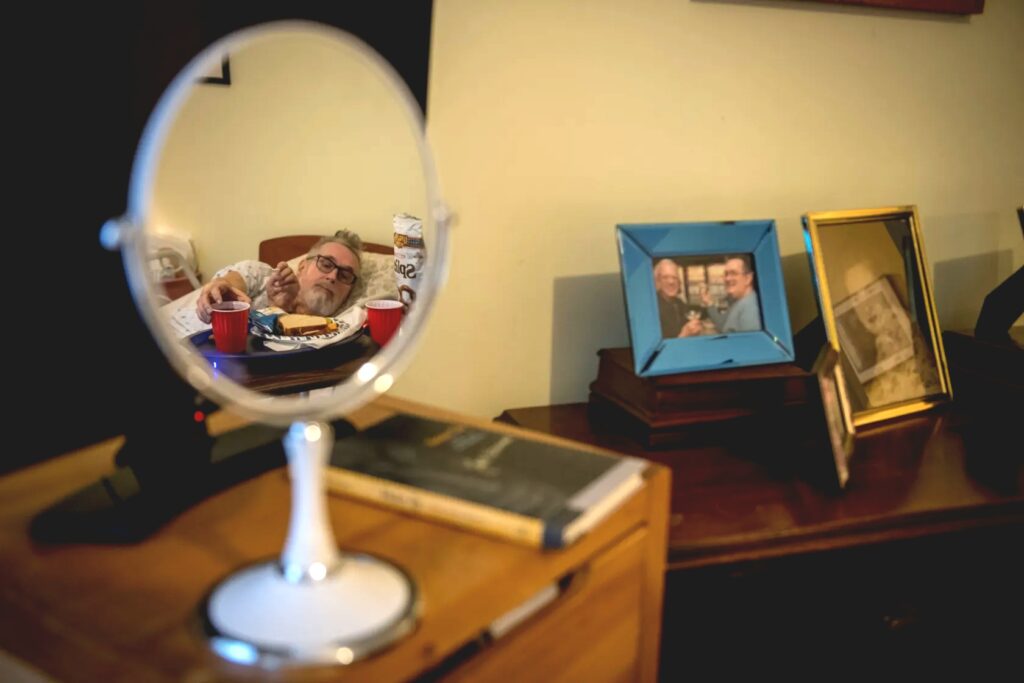Healing together

Our Values + Practices
Love
We believe that love is an action word that manifests itself through integrity, loyalty, forgiveness, and a never-ending practice of exquisite care for each other. By living with unconditional love, we grow closer as a community.
Welcome
We work hard to keep our doors and our hearts open to all those who enter our community, and we rejoice in the unique worth of each person who crosses our threshold. We strive to “welcome everything, push away nothing” and commit to the hard conversations about justice, equity, diversity, and inclusion.
Service
We practice and teach a model of accompaniment that uplifts the dignity of each individual we serve. Our organization was founded with a deep commitment to bringing our whole selves in service to the poor and marginalized.
Advocacy
We give voice to the experiences of our community members and the external structures that impact their lives. In each moment, we identify what is most important and urgent for the members of our community and use our skills and resources to empower each individual to overcome their challenges and realize their goals.
Growth
We practice and teach a model of accompaniment that uplifts the dignity of each individual we serve. Our organization was founded with a deep commitment to bringing our whole selves in service to the poor and marginalized.

Our History
1990 – Present
Since our founding in 1990, Joseph’s House has served as a beacon of hope and compassionate care for individuals facing homelessness due to HIV/AIDS. Our visionary founder, Dr. Hilfiker, recognized the devastating effects and stigma of the AIDS crisis on some of the most vulnerable members of our community in DC, and that vision continues to inspire us today.


Joseph’s House has evolved to provide care for individuals of all gender identities, including those experiencing homelessness with terminal cancer and individuals with HIV and co-morbidities. We offer Medical Respite for recovery and continued Supportive Services for former residents to help maintain their health and well-being. While our services have expanded, our dedication to compassionate, holistic care and community support remains steadfast.
Our Staff & Volunteers
Administration
Chenelyn Barker
Development Manager
K.C. Price
Director of Development
Russia Dennis
Director of Clinical Services

Klavin Johnson
Community Ambassador 2025
Community Care Aides/PRNs
Medgyne Andre
Corrina Berry, PRN
Carol Burney
Zoe Chen, PRN
Miguellina Del Rosario, PRN
Jamie Duggins
Facilities Manager
Ma’Nye Robinson
Tracey Wills
Office Coordinator
Medical Staff
Oumou Cisse, RN
RN Manager
Crystal Jones, RN, BSN
On-Call Nurse
Damien Wills, LPN
On-Call Nurse
Non-Medical Staff
Janessa Cobb
Social Worker
Volunteers/Interns
Kevin Daily, Social Worker
Ignation Volunteer Corps
Tommy Flood
Jesuit Volunteer Corps
Brian Greyson
Kirsta Gorham
Jesuit Volunteer Corps
Consultants
Han Group
Meredith Haussler
Finance
Douglas Kebengwa
IT
Lisa Redlich
HR
Our Board
President
Charles Ritman
Vice President
Alicia Horton
Secretary
Tracy Cecil
Treasurer
Eric Fahmi
Nicole Bailey
Nana Sarpong
Sari Frankel
Sarah Henn
Brian Muhlbach
Kiran Sreenivas
Andre Strickland
Joseph’s House sincerely appreciates the generous financial support we receive from foundations, government agencies, religious institutions, corporations, and the dedicated neighbors and friends of Joseph’s House. Your contributions, along with the support from individuals across the nation who share our vision, are vital to fulfilling our mission.
Our Funding & Partners




Want to see more detailed information about our funding? Click here for more information.


